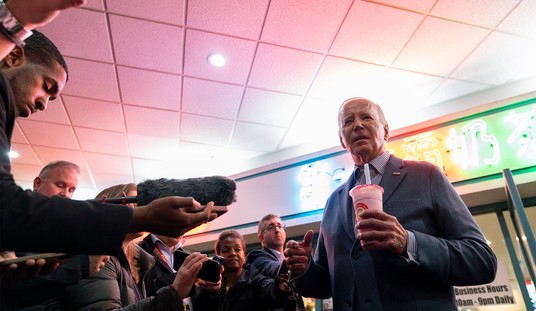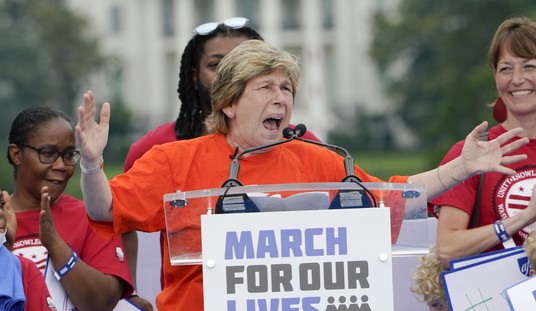The link above is to the NPR story (written and audio). I suggest everyone look at least at the written version; there are some very interesting and interrelated pieces of goalpost-moving propaganda:
But Kate Kendell, executive director of the National Center for Lesbian Rights, doesn’t buy it.
“There is absolutely not one scintilla of evidence that that fact of who he is biased him against the proponents,” Kendell says.
Kendell notes that America’s entire legal system rests on the idea that judges can keep an open mind and be objective about the issues before them. “We cannot be about assuming that simply because a judge is of a certain sexual orientation, race or gender, he or she is incapable of actually doing the job of a judge,” she says.
Note that Kendell is actually arguing that the judge is biased, but that his bias should be permitted, or “forgiven.” She is claiming, falsely, that the issue is whether or not the judge is gay (“who he is”)—but in fact, the issue is that the judge, being in a longterm same-sex relationship, stands to directly benefit by his own ruling.
Kendell is claiming that “who the judge is” — his status — does in fact determine how he will rule, which is a confession that she believes him biased on the basis of “status,” but she seeks thereby to make the argument that noting his “status” is a matter of prejudice which must therefore be discarded. She is attempting to cover up that the issue is not one of status but of conflict of interest due to the judge directly benefiting.
This effort to switch the argument from conflict of interest/direct benefit continues:
Attorney Ray Marshall, a former chairman of the California Bar Association, fought for more diversity in the legal profession and on the bench. Those changes would be undermined, he says, by disqualifying a judge based on sexual orientation.
Marshall notes that one of the landmark cases in civil rights history — Brown v. the Board of Education desegregating public schools in the 1950s — was decided unanimously by an all-white Supreme Court.
“The presumption was that of course nine judges — all white men — will read the Constitution and make the decision fairly,” Marshall says.
Marshall’s argument is, if possible, even more convoluted and bigoted than Kendell’s. He argues, first, for the need for “diversity”—which suggests that he believes that it is necessary to add people to the bench who are biased on the basis of “status” in order for certain litigants to obtain favorable rulings. There is, after all, no other basis on which to argue for “diversity” as such.
Yet, in the next breath, Marshall seems to argue against his own “diversity” position, noting that “nine white judges” made the ruling in Brown v. Board of Education. It would seem that, if “white judges” can rule in favor of black plaintiffs, “diversity” is not the necessity Marshall believes it to be.
But the convolutions are greater than that. By using Brown as an example, Marshall implies that it is, in fact, remarkable, noteworthy or unusual that a judge or judges should rule “against” their skin color (skin color being, to him, a defining “status”). He also seems not to notice that if, indeed, skin color is the defining status he believes it to be, the justices in Brown did precisely the opposite from what Judge Walker did in the Prop 8 case—they ruled against what their “status” would have theoretically dictated, while Walker ruled for what his “status” would theoretically dictate.
Again, both of these commentators argue entirely on the basis of “status” rather than address the purely legitimate issues of personal conflict of interest and the appearance, thereby, of impropriety. They are doing this—despite arguments which are innately self-contradictory—because they wish to change the argument from an issue of one judge’s personal conduct and interests to a “status” issue, and because they actually believe in the bias that they are denying exists, and want to institutionalize it.








Join the conversation as a VIP Member